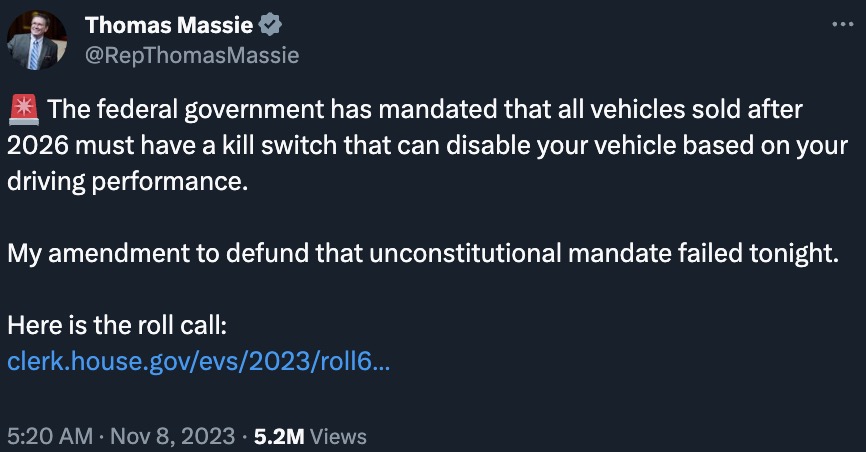The controversial federal mandate requiring all vehicles from 2026 onwards to embed an auto-disable or “kill switch” technology was met with resistance on Tuesday as it faced potential defunding. Despite efforts by Kentucky Republican Representative Thomas Massie, the House chose to reject the amendment that could have seen the mandate dissolved, in a vote of 229 to 201, thereby keeping the future of personal movement under the watchful presence of corporations and government.
The mandate was originally integrated into the 2021 Infrastructure Investment and Jobs Act, prompting Massie to attempt defunding it. The dividing lines were clearly drawn, with 210 Democrats and 19 Republicans voting against the amendment and just two Democrats siding with the 199 Republicans who voted in favor. Eight members abstained from participating in the late-night voting session.

The kill switch mandate forms a critical element of the 2021 infrastructure law. Car manufacturers are bound by the legislation to incorporate advanced driving technology designed to proactively assess a driver’s performance and, if deemed impaired, limit or completely prevent the vehicle from functioning. Hailed initially as a safety feature, it also raises privacy concerns, providing unprecedented access to personal information and individual freedom of movement.
However, attempts to call attention to the potential overreach of this mandate have been dismissed. Assertions were made that the hyperbole surrounding the term “kill switch” was simply alarmist, as the suggestions under consideration wouldn’t abruptly halt a moving vehicle, as if that was the only thing that people were concerned about.
Undermining the credibility of these dismissals, however, is the reality that the implementation of this technology would be directed by non-elected agency officials. The substantial power handed to these individuals to dictate the operations of new vehicles highlights a potential overreach of authority and encroachment on privacy.



